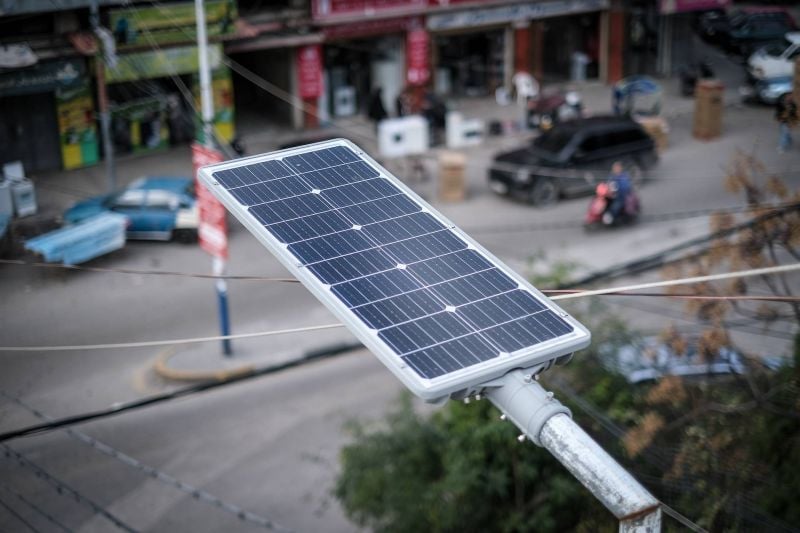
A solar panel recently installed on the street dividing the Tripoli neighborhoods of Jabal Mohsen and Bab al-Tabbaneh. Feb. 21, 2024. (Credit: Joao Sousa/L'Orient Today)
TRIPOLI — “We used to go to the Army in handcuffs, now we go to them with lightbulbs,” jokes Bassam*, a young ex-combatant from Tripoli’s Bab al-Tabbaneh neighborhood.
The men sitting around him in a circle break out into laughter. They’re gathered together at MARCH Lebanon, a peace-building NGO and community center in Tripoli.
Not long ago, these same young men — now close friends — were sworn enemies.
But since 2011 they’ve been working through MARCH to fight against the social divisions that once separated their two adjacent neighborhoods: Bab al-Tabbaneh and Jabal Mohsen.
Their latest project: setting up solar-powered streetlights throughout both of them. The participants have installed a total of 382 solar panels since the project began in September.
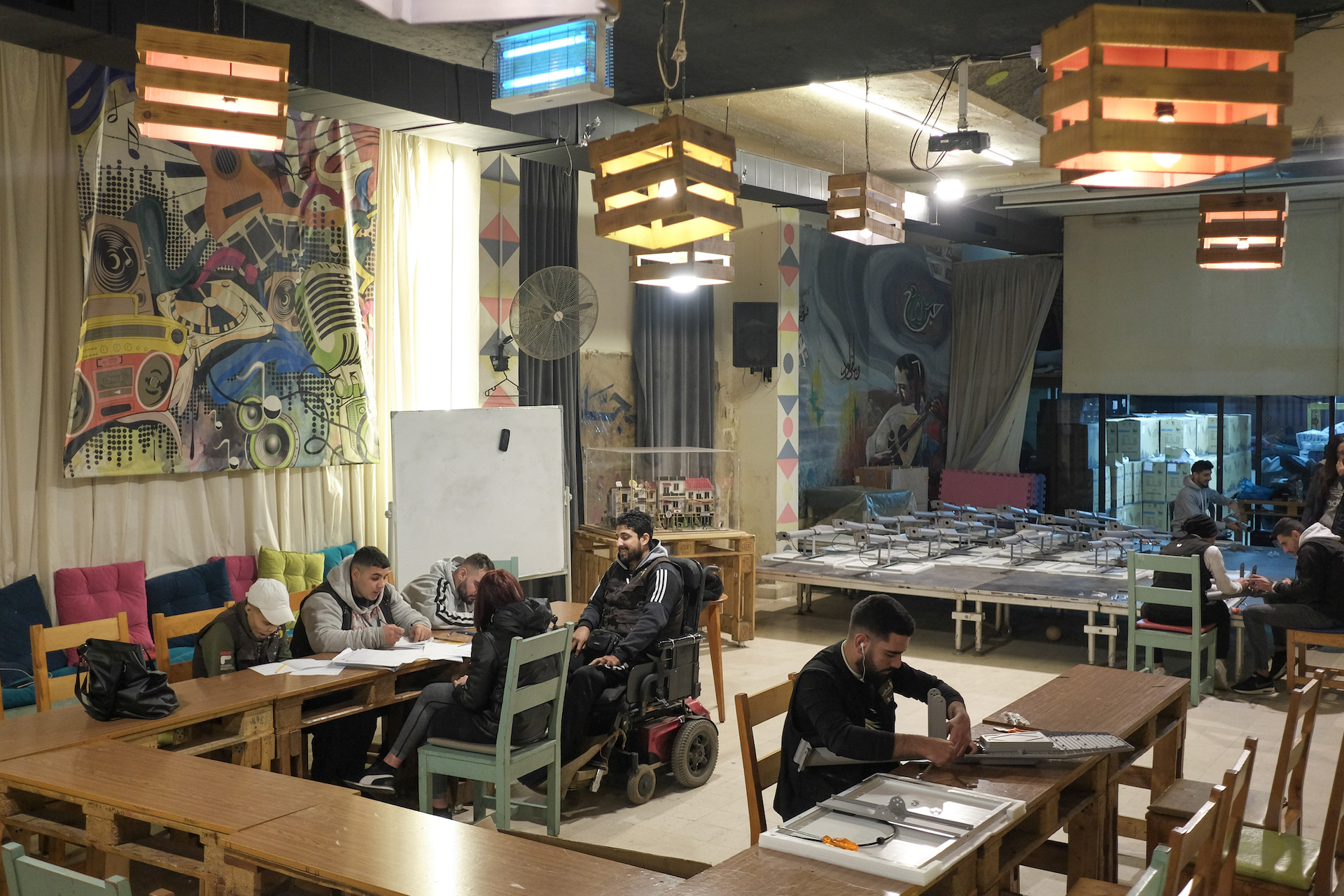 The MARCH headquarters in Tripoli, located on the dividing line between the neighborhoods of Jabal Mohsen and Bab al-Tabbaneh. Feb. 21, 2024. (Credit: Joao Sousa/L'Orient Today)
The MARCH headquarters in Tripoli, located on the dividing line between the neighborhoods of Jabal Mohsen and Bab al-Tabbaneh. Feb. 21, 2024. (Credit: Joao Sousa/L'Orient Today)
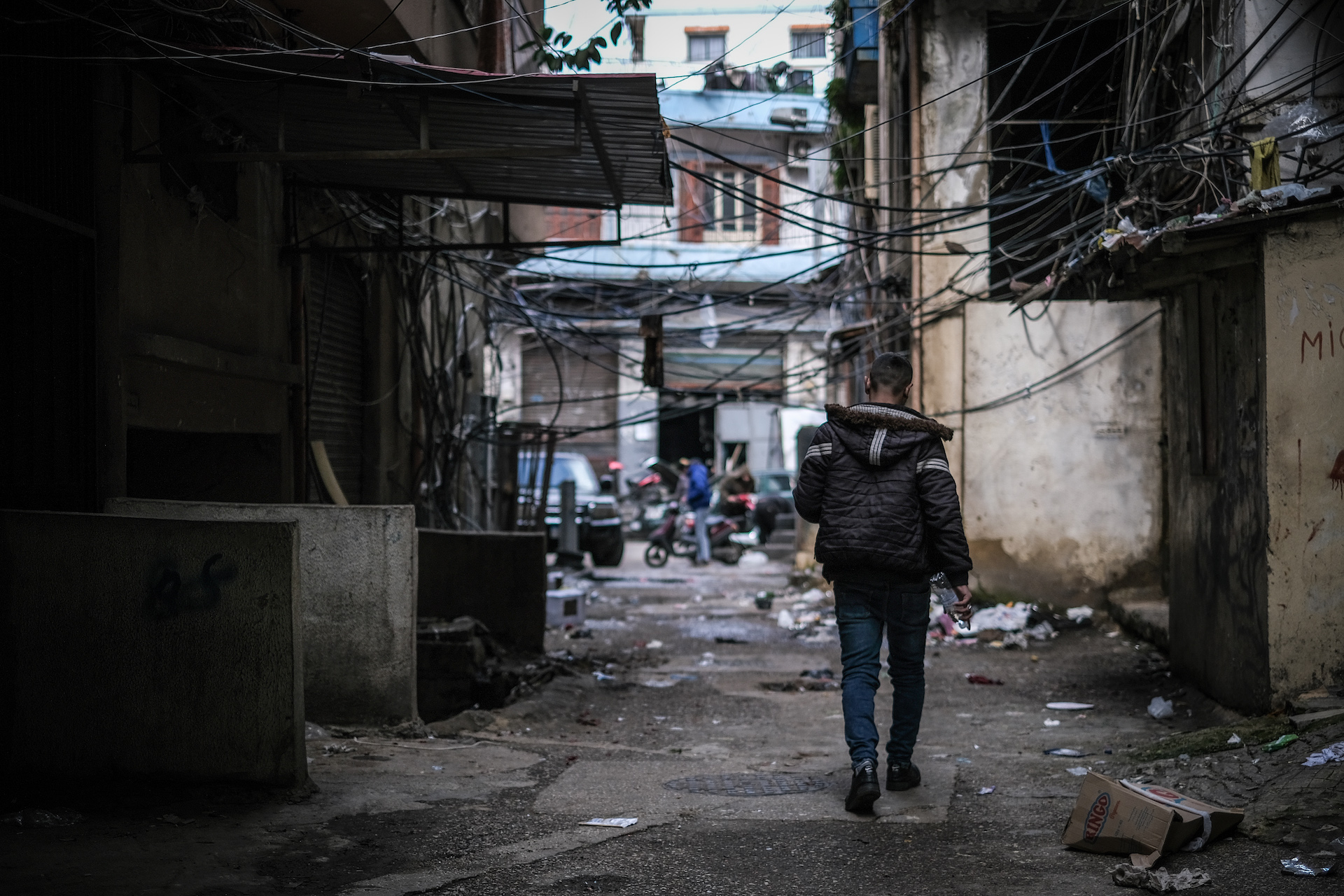 A street in Tripoli, where volunteers recently installed solar powered streetlights. Feb. 21, 2024. (Credit: Joao Sousa/L'Orient Today)
A street in Tripoli, where volunteers recently installed solar powered streetlights. Feb. 21, 2024. (Credit: Joao Sousa/L'Orient Today)
Both Bab al-Tabbaneh and Jabal Mohsen are marked with the bullet holes of recurring sectarian-political battles, which were only exacerbated by the outbreak of the Civil War in Syria in 2011. The fighting has killed hundreds of casualties since it began simmering decades ago and ended in 2015 with the Lebanese Army’s deployment to the area.
It remains under the watch of the military today.
A bright idea
Besides the simmering violence, darkened streets and neighborhoods “used to be one of our pains in this city,” says Ahmad Shaaban, a Tabbaneh resident who has been working with MARCH for the past eight years.
Lebanese authorities have mismanaged the electricity sector for decades, especially neglecting the country’s north and south. Like the rest of Lebanon, Tripoli — especially Jabal Mohsen and Bab al-Tabbaneh — has suffered.
Power supply dimmed even further due to the economic crisis that struck Lebanon in 2019, reducing the capacities of state provider Électricité du Liban (EDL), and inflating the cost of private generator subscriptions beyond the means of most Lebanese.
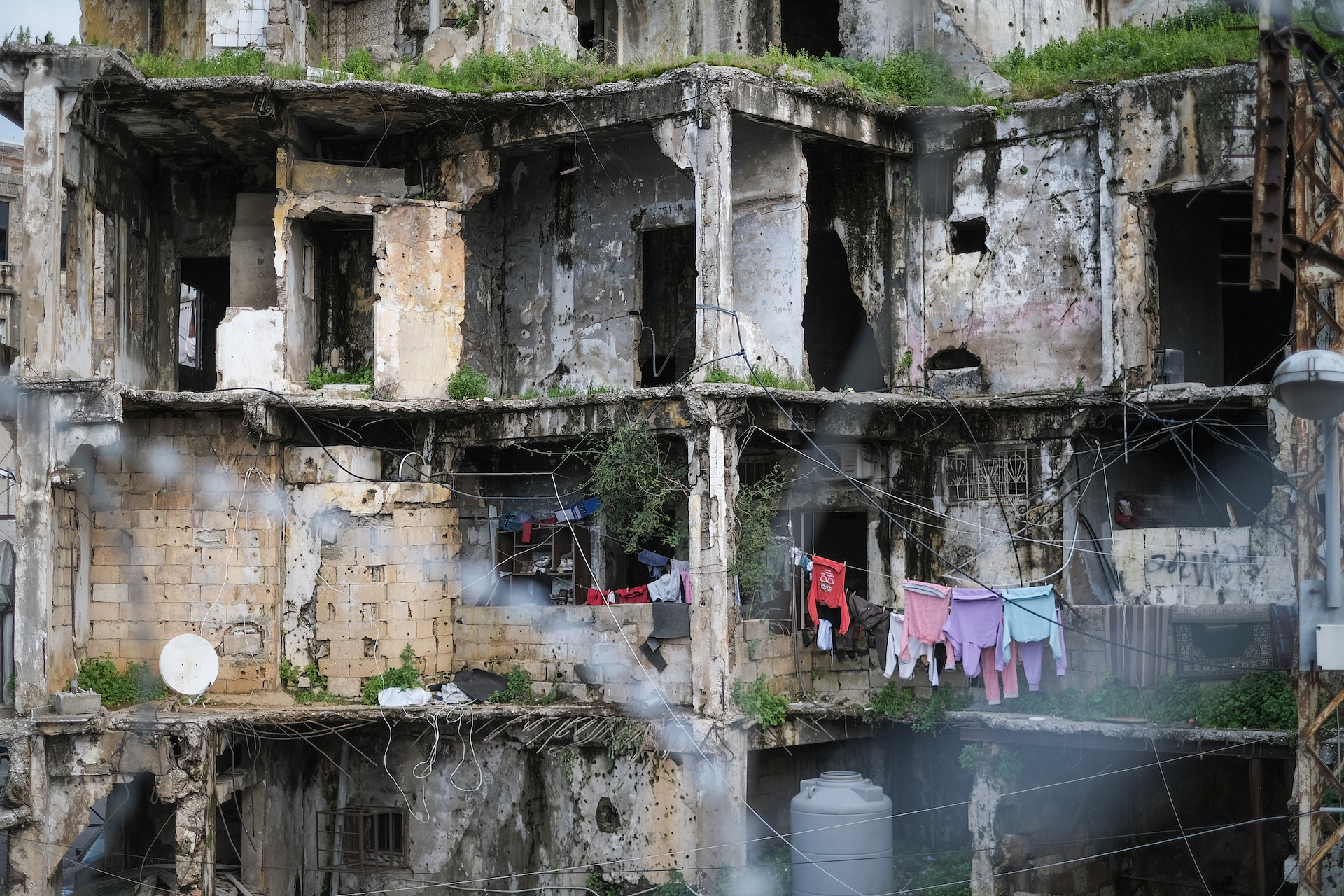 Dilapidated housing in Jabal Mohsen, Tripoli. Feb. 21, 2024. (Credit: Joao Sousa/L'Orient Today)
Dilapidated housing in Jabal Mohsen, Tripoli. Feb. 21, 2024. (Credit: Joao Sousa/L'Orient Today)
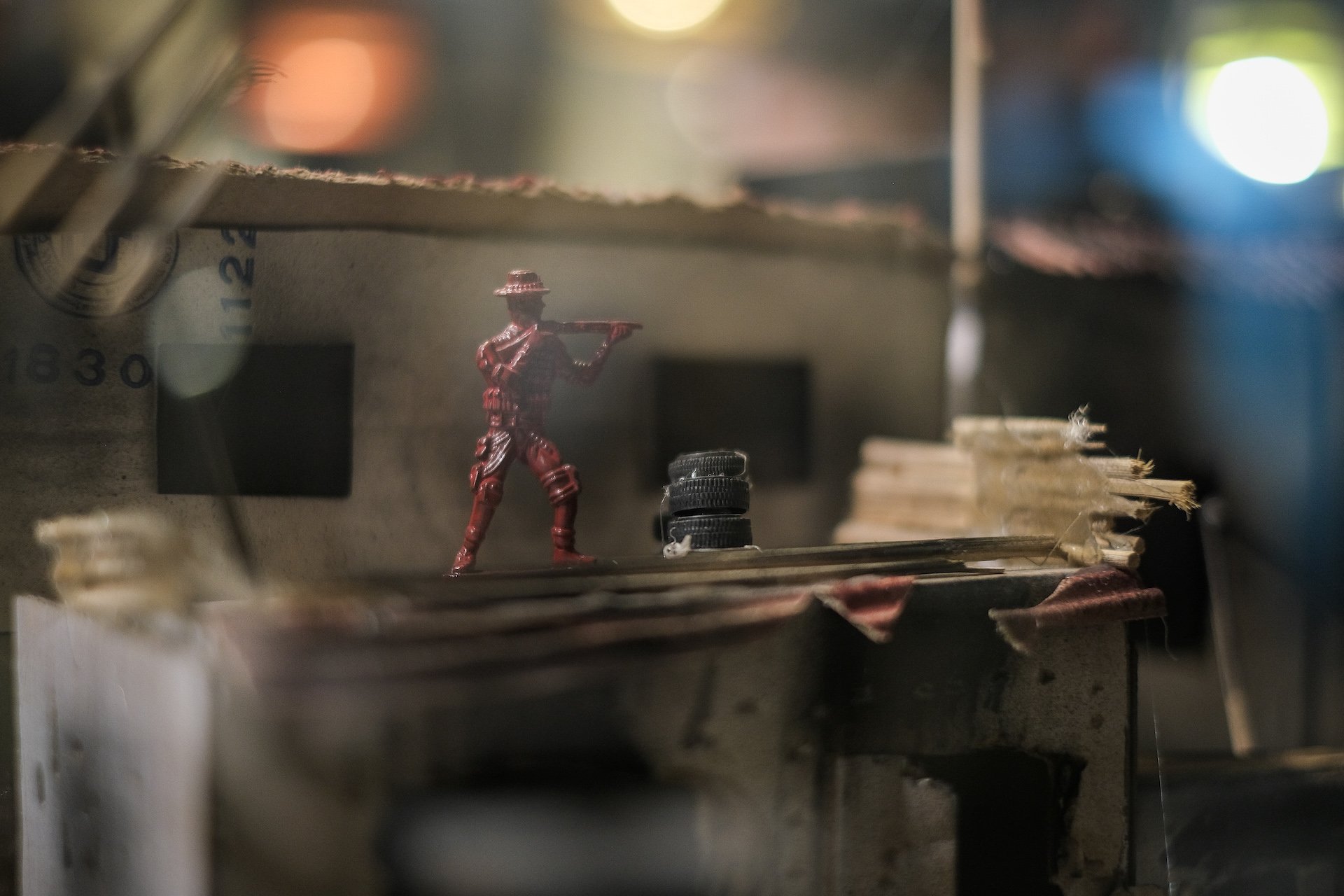 A miniature model showing past violence between the Tripoli neighborhoods of Bab al-Tabbaneh and Jabal Mohsen. Feb. 21, 2024. (Credit: Joao Sousa/L'Orient Today)
A miniature model showing past violence between the Tripoli neighborhoods of Bab al-Tabbaneh and Jabal Mohsen. Feb. 21, 2024. (Credit: Joao Sousa/L'Orient Today)
Municipalities and residents across the country have resorted, instead, to solar power for their electricity needs.
MARCH participants decided the best way to tackle the dark streets in their own corner of Tripoli would be to install solar-powered street lights.
“The symbol of this project lies in the fact that all three sides — us [Bab al-Tabbaneh residents], Jabal Mohsen residents and the Lebanese Army, all of whom were fighting against each other, worked together and installed the solar panels hand in hand,” says Bassam, who fought in Syria against the Assad regime and served years in Lebanese prisons.
“Darkness contributes to conflict,” he says. “When you can’t see what they tell you is your enemy, you will live in perpetual fear.”
“Which always eventually leads to conflict.”
MARCH has been building bridges between the communities of Jabal Mohsen and Bab al Tabbaneh since 2011, through a conflict resolution and mediation program, vocational training, therapy and other services.
“I used to fight the people from Jabal. The fact that we’re sitting here today, it would have been impossible a few years ago,” Shaaban, 39, says.
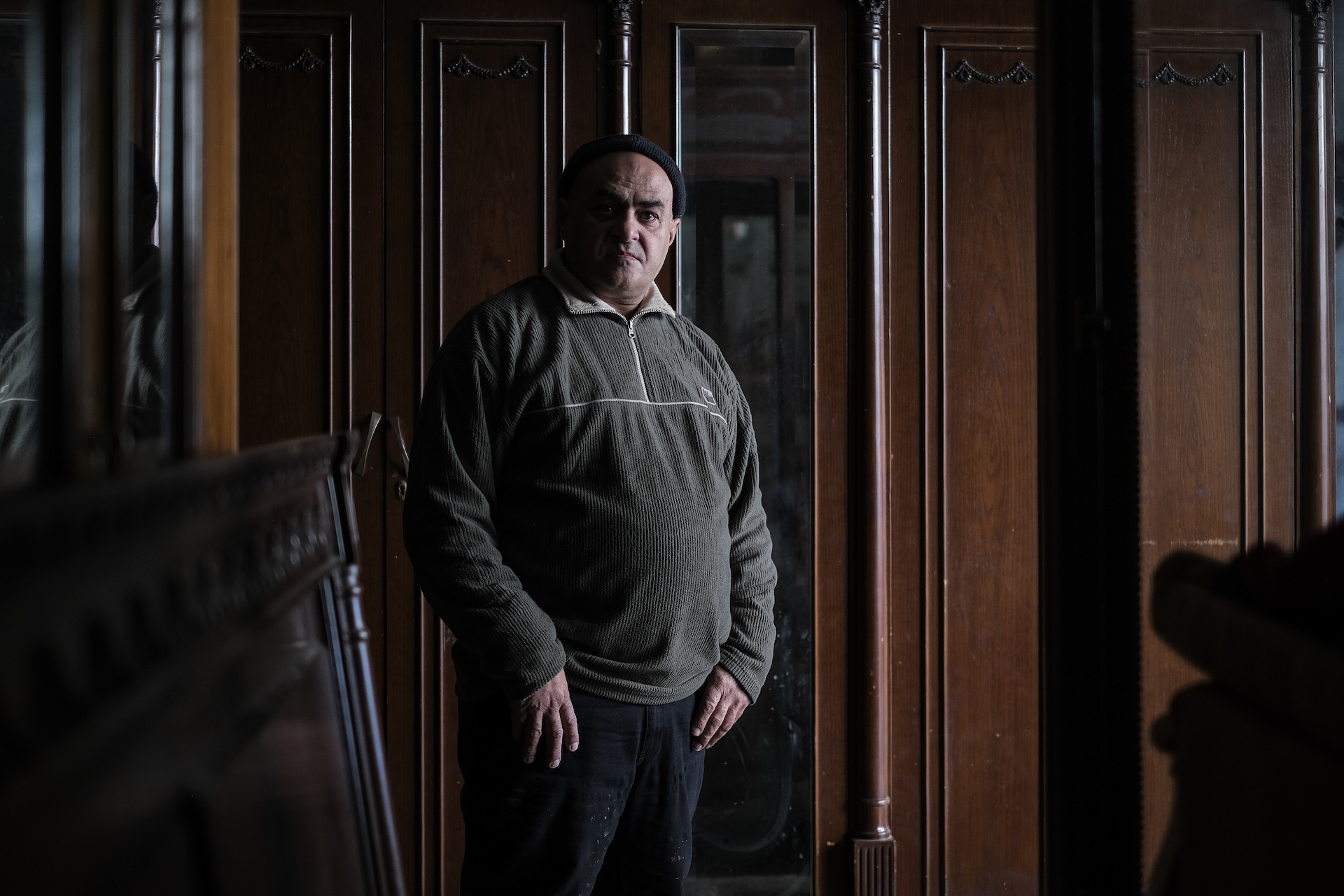 Carpenter Omar al-Mahmoud poses for a portrait inside his workshop in Bab al-Tabbaneh, Tripoli, Feb. 21, 2024. (Credit: Joao Sousa/L'Orient Today)
Carpenter Omar al-Mahmoud poses for a portrait inside his workshop in Bab al-Tabbaneh, Tripoli, Feb. 21, 2024. (Credit: Joao Sousa/L'Orient Today)
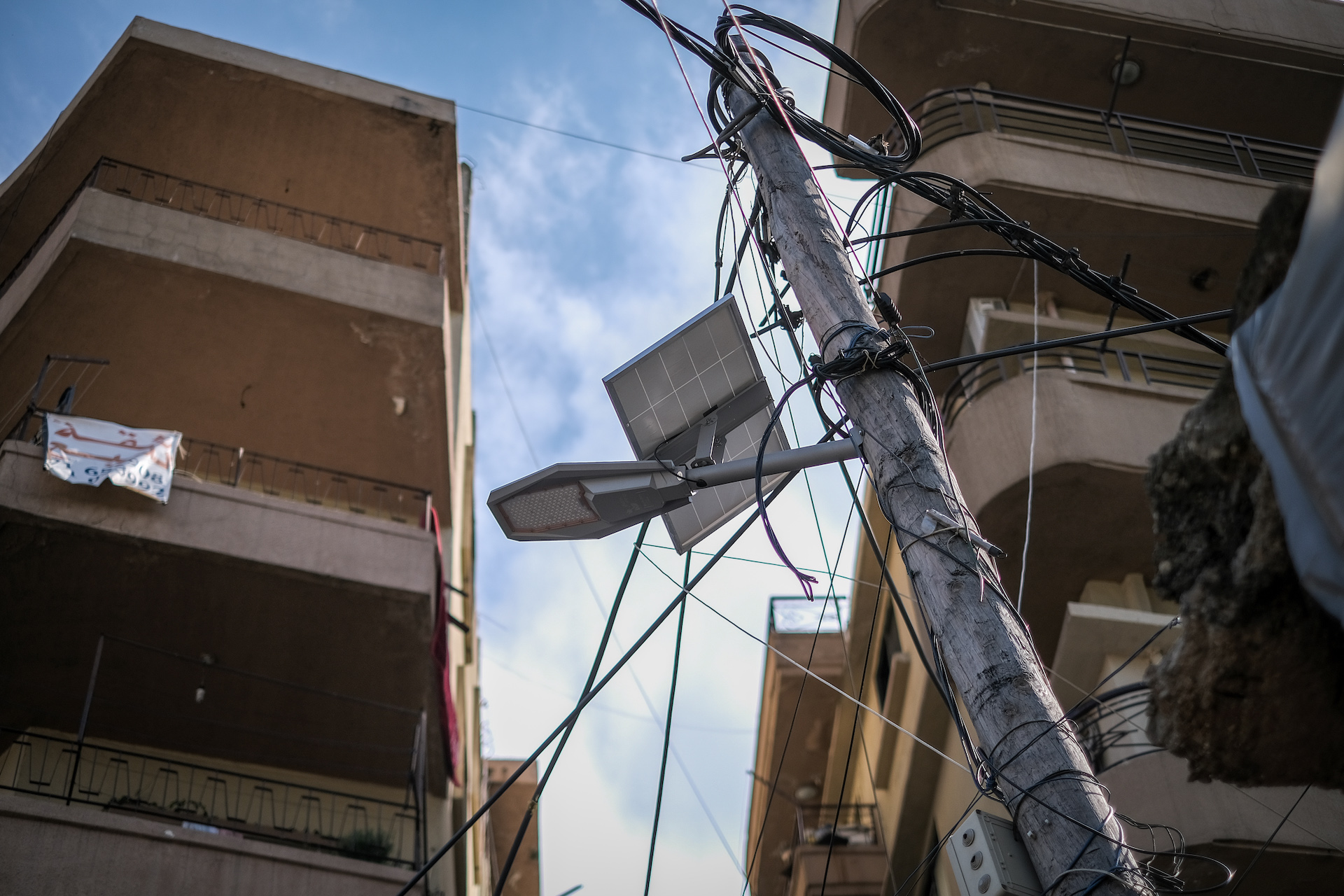 A solar panel-powered street light installed by MARCH volunteers in Tripoli. Feb. 21, 2024. (Credit: Joao Sousa/L'Orient Today)
A solar panel-powered street light installed by MARCH volunteers in Tripoli. Feb. 21, 2024. (Credit: Joao Sousa/L'Orient Today)
“They were our enemies. I was shot by them three times in the fights,” he says, pointing to his chest and arm. He went to prison for a year when he was 28.
Atrice Hussein, 33, a fellow MARCH volunteer, eventually persuaded Shaaban to join the NGO a few years ago. “We worked on ourselves a lot. It was really hard at first,” Shaaban recalls.
“I had a really negative idea about people from the Jabal, but then we reached the point where we were having lunch together. And repairing the area together. I realized soon enough that we were really the same.”
That change has branched outside of his own work at MARCH, Shaaban adds. “My father didn’t accept that I was working with people from the Jabal at first. But now it has changed.”
“Not even the politicians could have accomplished what MARCH did,” says Shaaban.
Mahmoud al-Omar, a 31-year-old ex-combatant from Jabal Mohsen, now hangs out “every day” with people from both sides of the street that divides the two neighborhoods, he says. “At each other's homes, in cafes.”
The solar panel project has brought them even closer together. After receiving training, they set out to install the panels. “We're working in each other's areas and we’re excited about it,” Omar says.
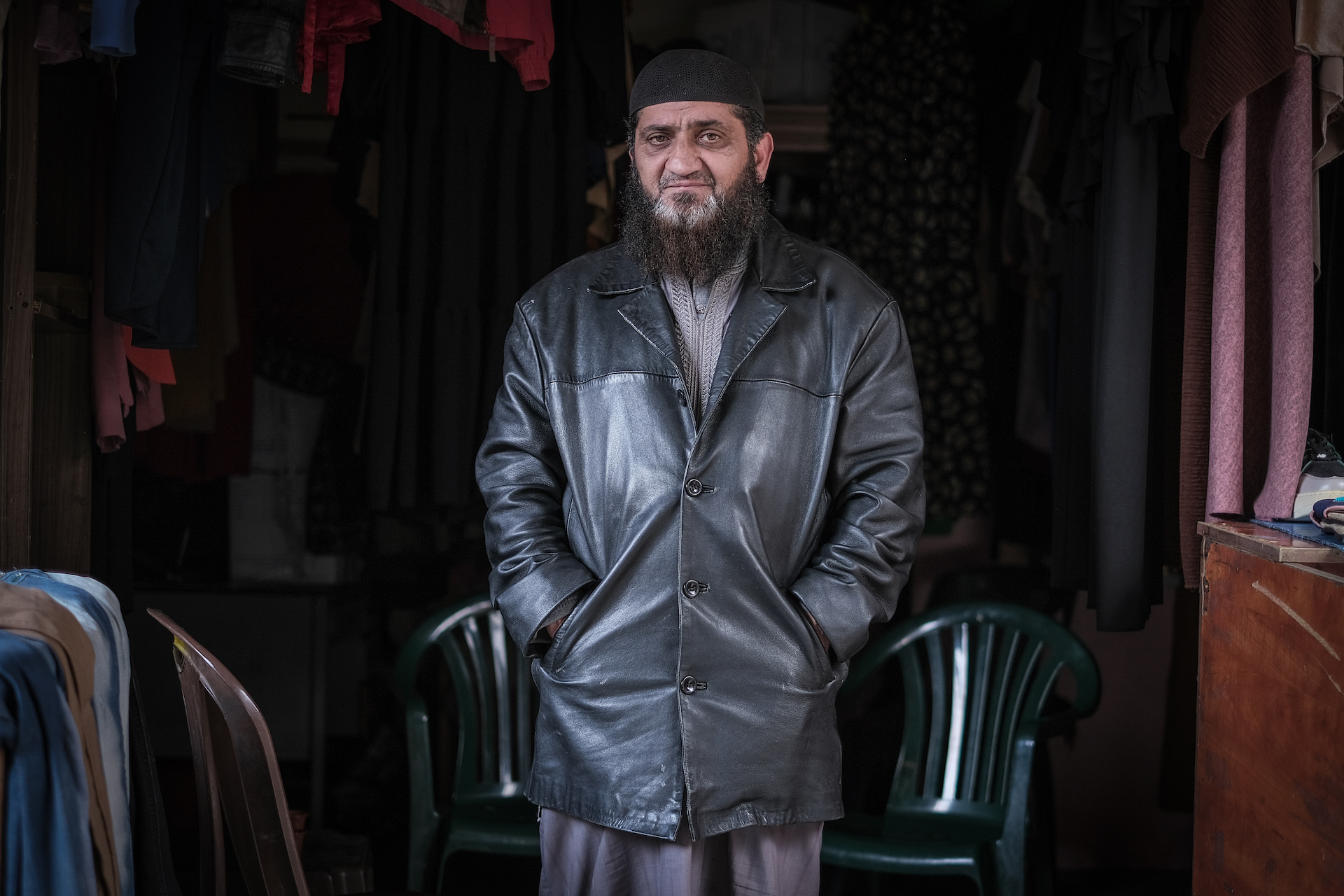 Ahmad Aetro, who owns a clothing shop in Bab al-Tabbaneh, poses for a portrait. Feb. 21, 2024. (Credit: Joao Sousa/L'Orient Today)
Ahmad Aetro, who owns a clothing shop in Bab al-Tabbaneh, poses for a portrait. Feb. 21, 2024. (Credit: Joao Sousa/L'Orient Today)
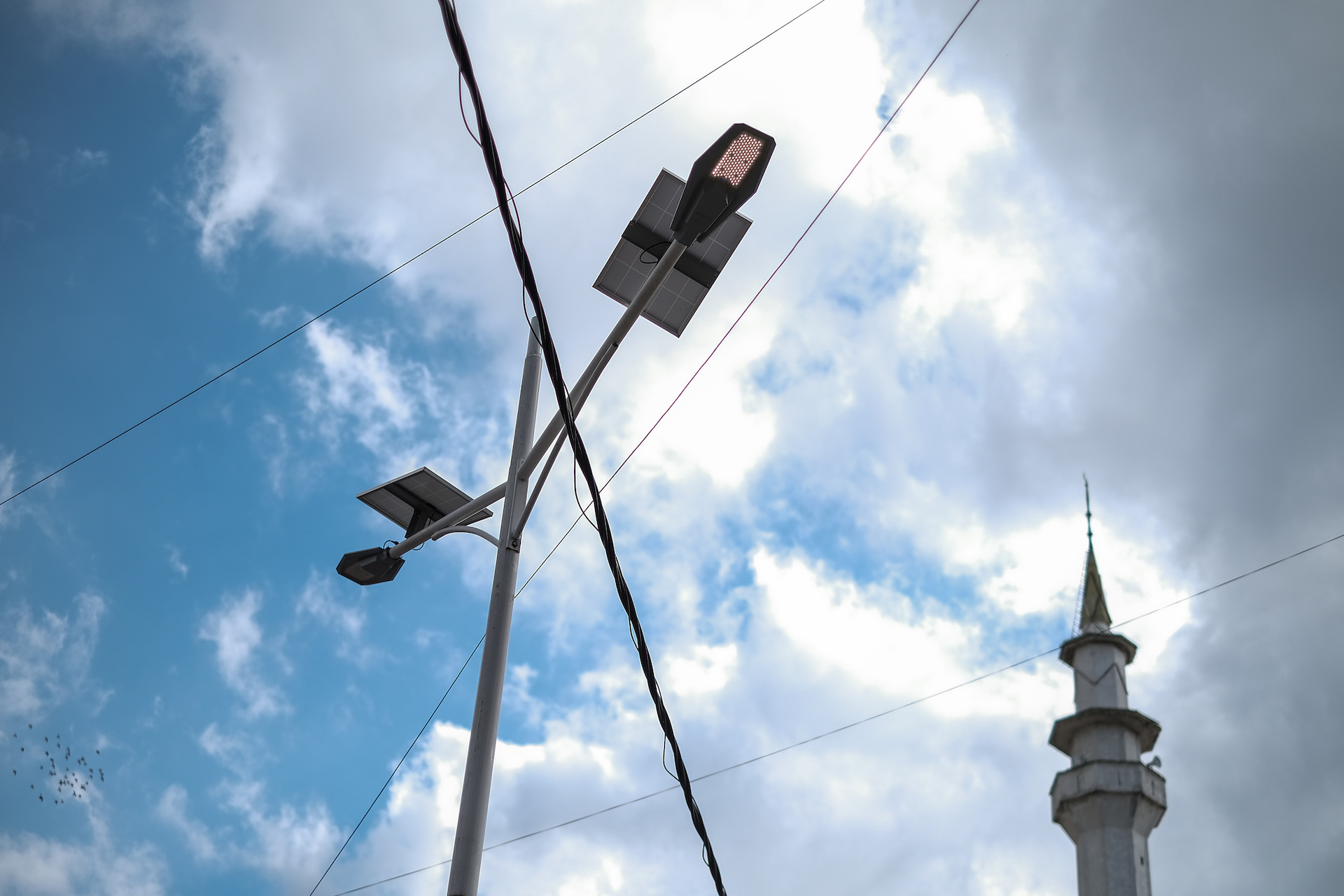 Solar-powered streetlights in Tripoli, where ex-rival fighters from the Bab al-Tabbaneh and Jabal Mohsen neighborhoods worked together to install the solar panels. Feb. 21, 2024. (Credit: Joao Sousa/L'Orient Today)
Solar-powered streetlights in Tripoli, where ex-rival fighters from the Bab al-Tabbaneh and Jabal Mohsen neighborhoods worked together to install the solar panels. Feb. 21, 2024. (Credit: Joao Sousa/L'Orient Today)
“I was installing solar panels in an area where before, I couldn’t even stand without being shot,” says Shaaban. “Now I go for arguileh at their houses, before, I used to lie in wait for them bearing a rifle.”
They also worked on solar-powered water pumps to supply the communities with water.
“People were happy, they would open up their homes and welcome us when we asked to install [panels] from their balconies,” Bassam says.
“We are also gaining the community’s trust,” Hussein says. “We used to be the bad boys, this is how society looked at us.”
The initiative also installed solar lights on Army checkpoints throughout the city, where previously, residents looked at soldiers with suspicion and distrust due to the Army’s hard-security approach.
Acts of service
Volunteers say the project has had a tangible impact. “The light helped reduce the incidents of theft and drug use,” Shaaban says.
Now, pedestrians can see at night along the pothole-ridden streets and dilapidated sidewalks, which, in the dark, used to be a safety issue for residents, especially the elderly, he adds. Many elderly used to get injured walking in the darkness, according to Shaaban.
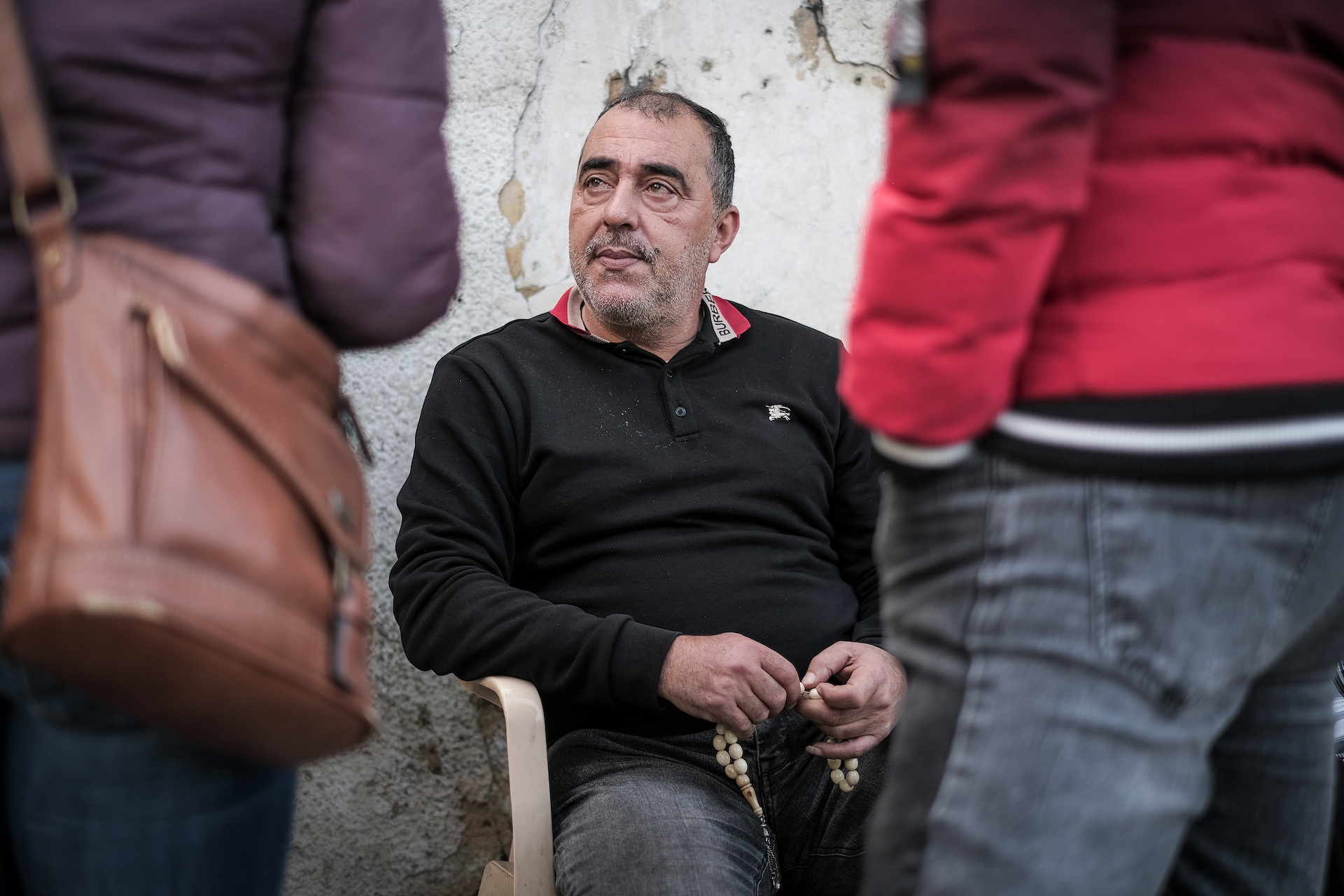 Ali Baiti, a resident of Jabal Mohsen who says the area used to have a lack of street lighting. Feb. 21, 2024. (Credit: Joao Sousa/L'Orient Today)
Ali Baiti, a resident of Jabal Mohsen who says the area used to have a lack of street lighting. Feb. 21, 2024. (Credit: Joao Sousa/L'Orient Today)
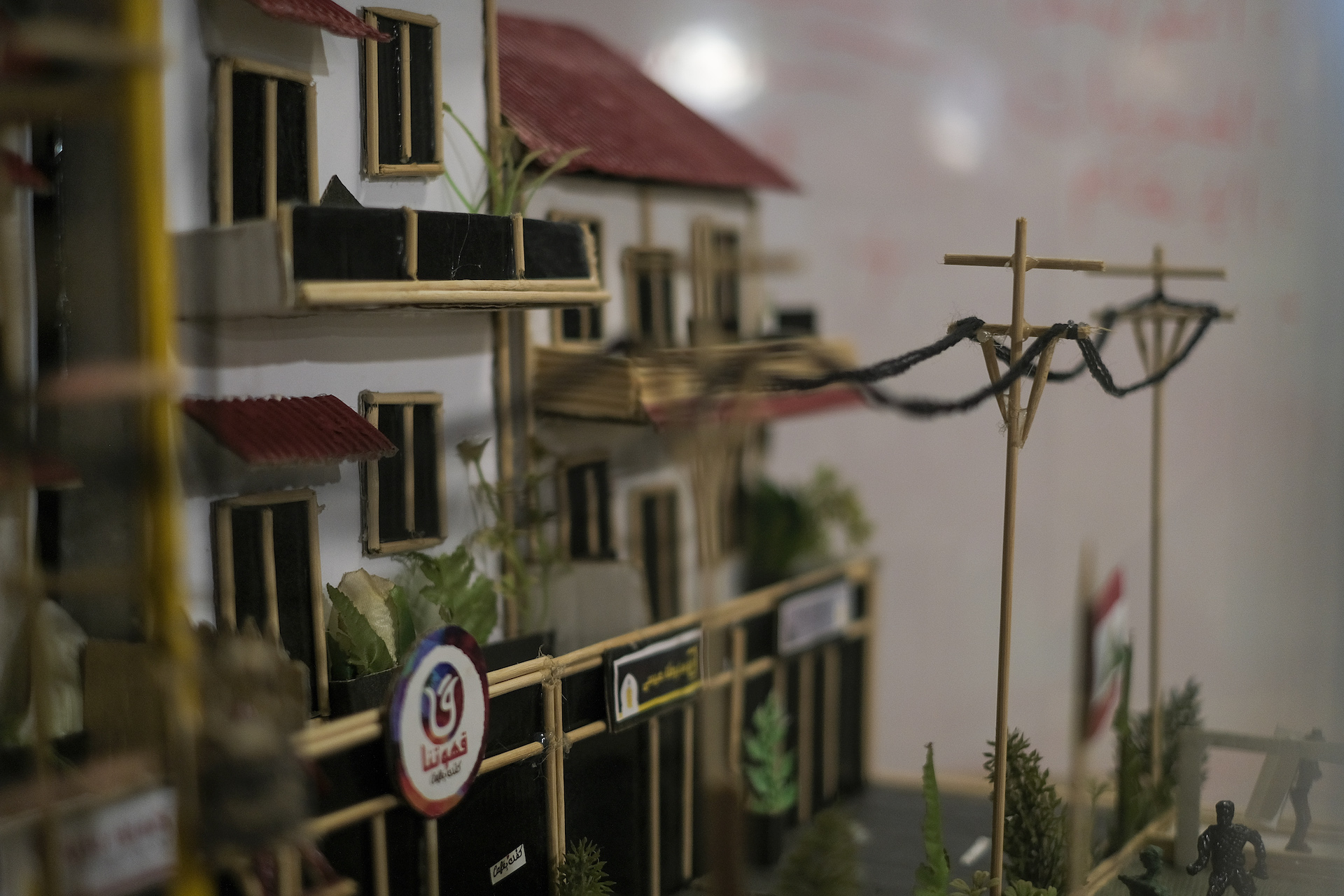 A miniature model of the street dividing Bab al-Tabbaneh and Jabal Mohsen. Feb. 21, 2024. (Credit: Joao Sousa/L'Orient Today)
A miniature model of the street dividing Bab al-Tabbaneh and Jabal Mohsen. Feb. 21, 2024. (Credit: Joao Sousa/L'Orient Today)
“Someone once attacked me attempting to steal my purse on my way back home on this very street,” Aman al-Zaabi, a Bab al-Tabbaneh resident, tells L’Orient Today while walking home with her child.
“I started screaming until he ran off and I couldn’t see his face because it was dark.”
“I have three young girls who I’m scared of being subjected to harassment at night, I’m more at ease now,” Zaabi adds.
MARCH volunteer Omar drives one of the organization’s tuktuks, bearing a sign that reads “Love and War Tour,” gesturing at streets with potholes and alleyway staircases that he says are now lit after sunset because of the solar panels.
“Just in this stretch, we got at least 20 lamps working now,” Ali Baiti says, standing next to his friend’s shisha shop in Jabal Mohsen, right at the former demarcation line.
“Now, we have less theft and no one dares anymore to do drugs here after dark,” which nearly all local residents and MARCH volunteers who spoke with L’Orient Today said is a huge problem in Tripoli.
Carpenter Omar al-Mahmoud’s wood workshop, in business for 30 years, lies in Bab al-Tabbaneh, adjacent to the Nasiri Mosque now adorned with at least a dozen functional street lamps.
He says people used to sneak into his electricity-deprived workshop to do drugs. Even though he still can’t afford a private generator subscription for light, he says the lit street now attracts fewer drug users into his workplace.
Ahmad Aetro, who owns a clothing shop in Bab al-Tabbaneh adds that the lighting now means residents can “attend morning prayer,” which takes place at dawn, just before the sun rises.
“It reinforced coexistence.”
*Full name has been omitted at the interviewee’s request to preserve their privacy
